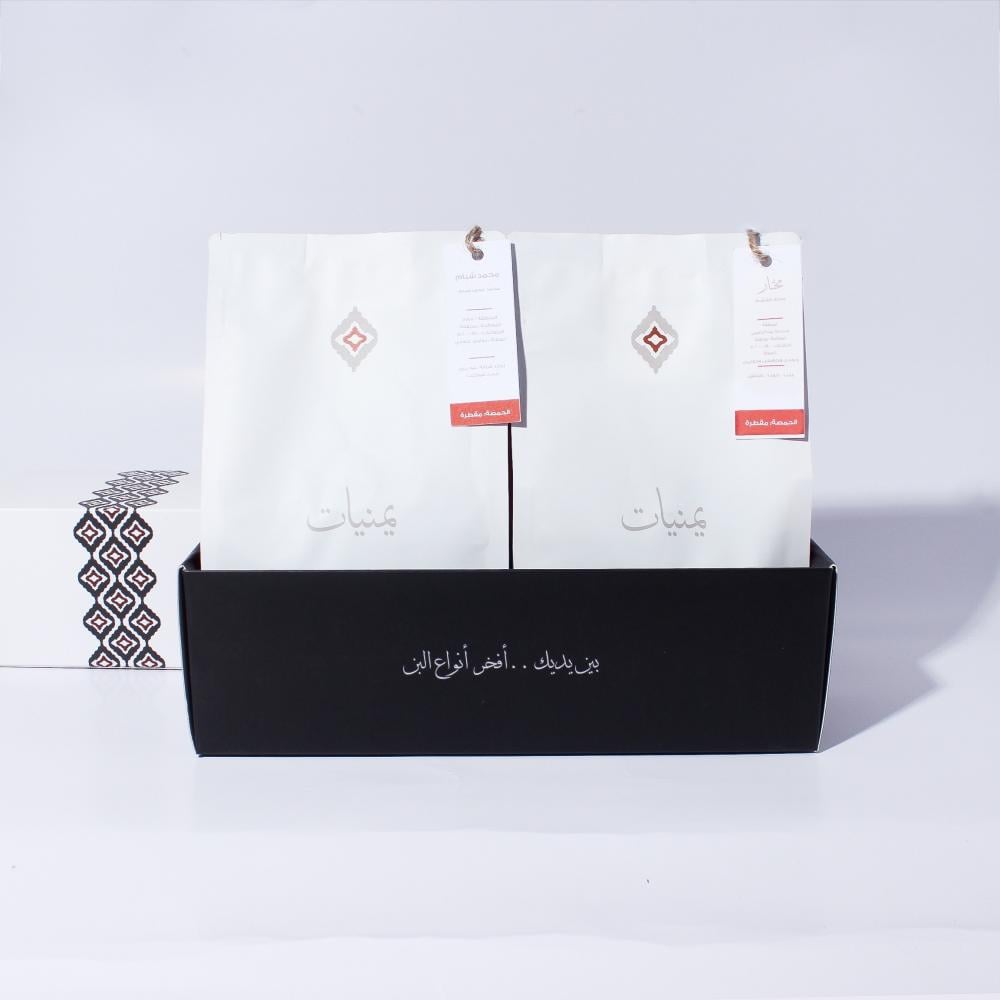With the abundance of coffee varieties on the market, many people wonder about the differences between coffee sourced from different countries and what distinguishes one type from another. Among the most ancient and established types of coffee are Yemeni and Ethiopian coffee, and they have left a prominent mark in the world of specialty coffee, as each type has a distinct flavor and a different environment that creates a special flavor. The differences between the two types are prominent, and among these differences are:
- Country of Origin:
The agricultural environment in Yemen is completely different from that of Ethiopia. The Yemeni environment is a harsh, dry mountainous environment, and coffee beans are often grown at an altitude ranging from 1,600 to 2,400 meters above sea level. Yemen also still maintains traditional agricultural methods, where coffee beans are grown on ancient mountain terraces using agricultural methods inherited from centuries ago. The environment in Ethiopia is rich, humid, and tropical, and coffee beans grow at an altitude of 1,500 to 2,200 meters above sea level. In Ethiopia, coffee beans are grown in various ways, and sometimes coffee grows wild in forests.
These environmental factors have influenced the flavor of the coffee. Yemeni coffee has complex, warm, and deep flavors, such as dates, spices, cocoa, and dried fruits. Ethiopian coffee, on the other hand, has a fruity flavor, such as berries, citrus, and flowers.
- Type of coffee bean:
Both regions use Arabica beans, but there are distinct differences in the coffee beans. Yemeni coffee has preserved traditional strains, but its beans are small and irregular due to traditional cultivation methods. In Ethiopia, Arabica beans are small to medium in size and possess a high genetic diversity, resulting in a wide variety of coffee varieties.
Despite these differences, each coffee bean maintains its familiar flavors. Yemeni coffee beans are distinguished by their earthy flavor and unique spices, while Ethiopian coffee is distinguished by its floral and fruity flavors.
Treatment methods
Each country uses all treatment methods, but Yemen relies on the natural method, but it also uses other methods. In Ethiopia, the most common are washed and natural treatment.
- Flavor hints:
Each coffee is distinguished by its unique flavor and different story, making them the best in the market. Cues determine the consumer's choice based on his inclinations. If he is inclined towards warm, deep Arabic flavors, he chooses Yemeni coffee. However, if he is inclined towards bright, fruity flavors and high, clear acidity, he chooses Ethiopian coffee. Yemeni coffee is also distinguished by its heavy body, unlike Ethiopian coffee, which has a medium to light body. Yemeni coffee takes you on a journey to taste different spices from cinnamon and cloves, and delights you with the flavors of dates, raisins, and cocoa. As for Ethiopian coffee, it is a different journey, as it takes you to a refreshing world with flavors of berries, strawberries, mango, and lemon. Both have a different journey, so choose your journey and live the moment with all your senses.
- Global demand:
Yemeni coffee is considered one of the rarest and most expensive coffee varieties in the world. This is due to its adherence to original cultivation methods and farmers' commitment to quality. As a result, it attracts great interest in specialty coffee markets due to its unique flavors and rare varieties. This has led to Yemeni coffee becoming expensive due to its low production and high quality.
Ethiopian coffee is the most sought-after globally due to its wide variety of flavors, which suit most tastes. Its prices range from medium to high, which is higher than regular coffee, but lower than Yemeni coffee.
- Breeds:
Yemeni coffee is preserved with very rare and original strains of Arabica coffee, the most famous of which are Al-Dawi, Al-Tafhi, Al-Barai, and Mocha. Yemen still cultivates non-hybrid strains, which gives it its unique and deep flavor. As for Ethiopian coffee, its strains are very numerous, reaching hundreds of strains. Ethiopian coffee has a tremendous genetic diversity, and this diversity contributes to an exceptional variety of flavors.
- History and fame:
Coffee has been famous for centuries, and Yemen was the first country to cultivate and export coffee to the world from the port of Mocha, which is the origin of the word Mocha. Yemeni coffee was also the only coffee that Europe drank in the 15th and 16th centuries, and Yemen preserved the reputation of coffee beans, so coffee became Yemeni, and Yemeni coffee remains the ancient coffee with the richest flavors in the world.
Ethiopia was the original cradle of coffee, where the first coffee plant was discovered. However, it did not export coffee beans. Ethiopian coffee has maintained its widespread fame, and is considered one of the most important and famous coffee beans in the world.
In the world of coffee, every coffee bean carries a story and a unique flavor that creates a distinctive character with every cup of coffee. Coffee lovers experience a journey with every cup of coffee, wandering among the various flavors of coffee. Coffee lovers are addicted to trying different types of coffee because trying new coffee means experiencing a new journey with distinctive flavors and unique aromas.

